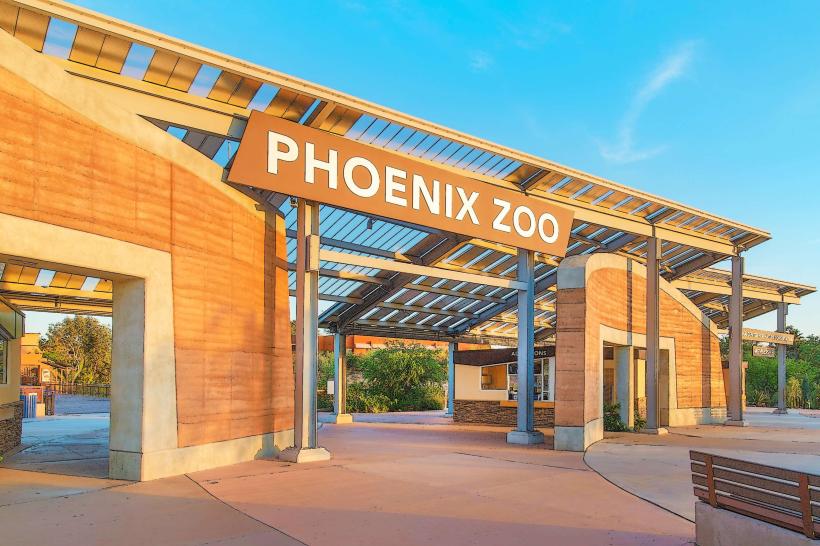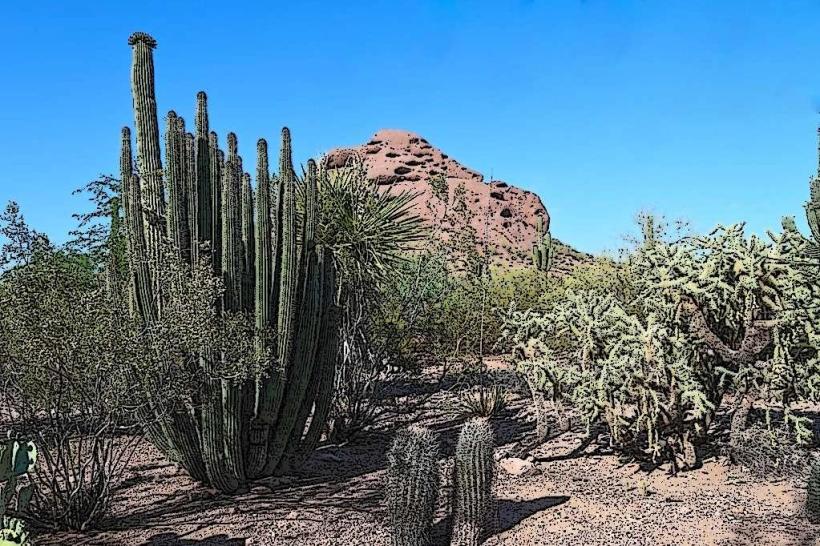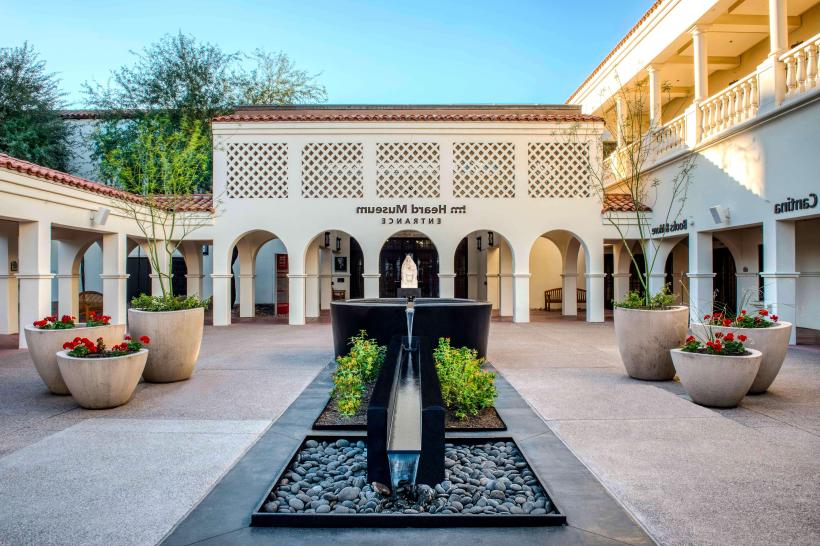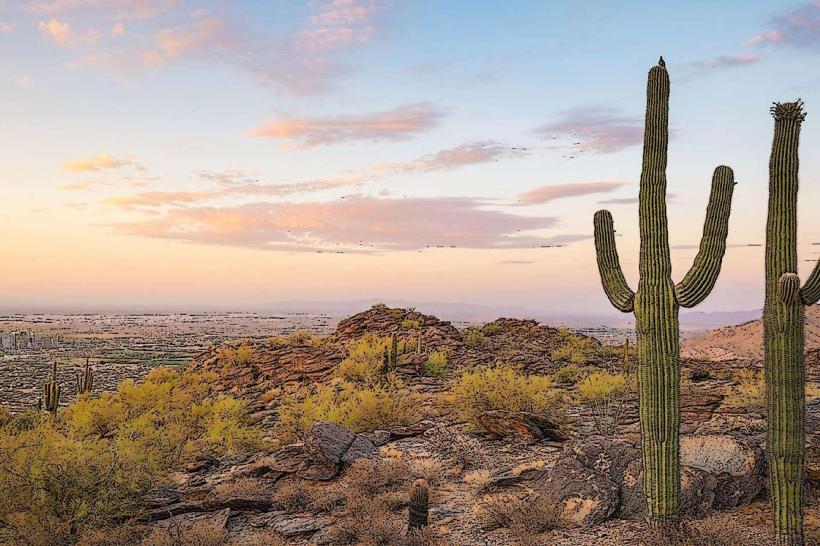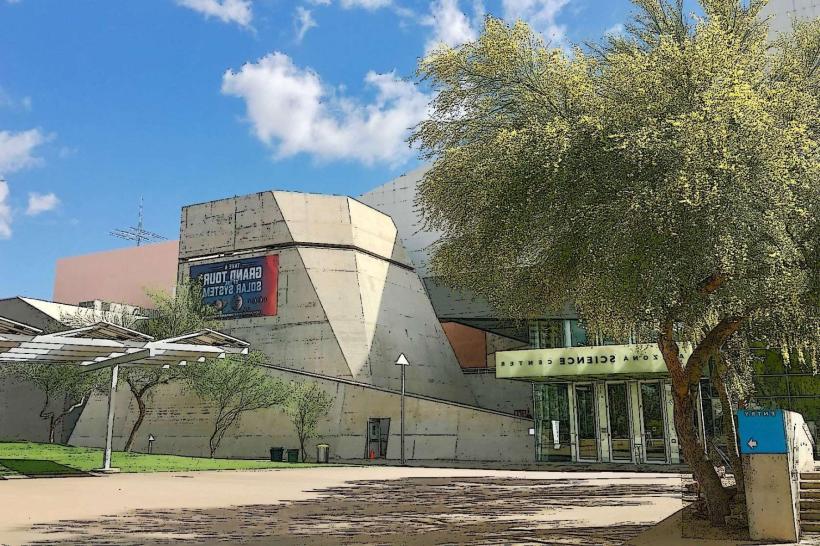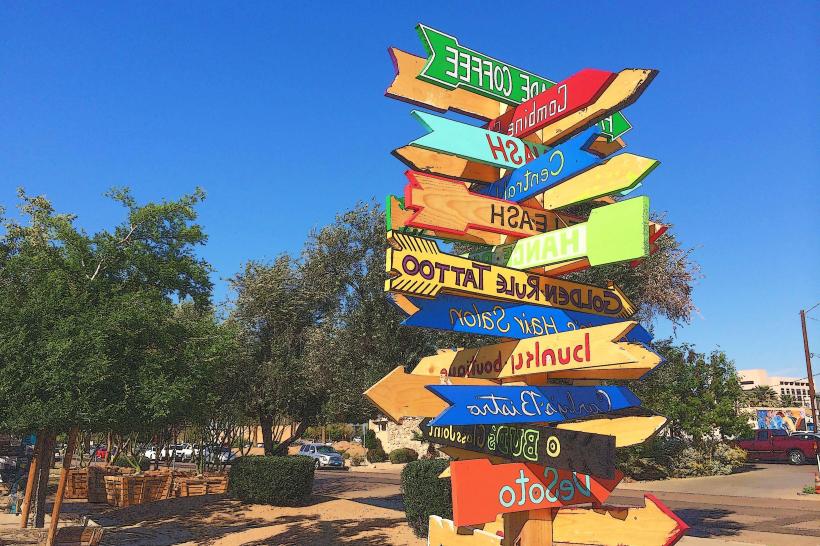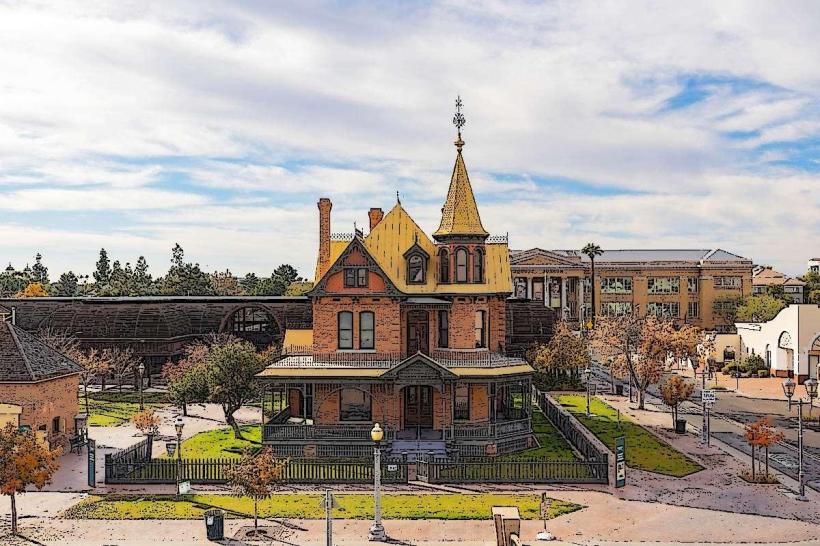Information
Landmark: Camelback MountainCity: Phoenix
Country: USA Arizona
Continent: North America
Camelback Mountain, Phoenix, USA Arizona, North America
Camelback Mountain is one of Phoenix, Arizona’s most iconic natural landmarks, offering a unique combination of challenging outdoor activity and stunning desert scenery. This prominent mountain rises to an elevation of 2,704 feet (824 meters) and is famous for its distinctive profile, which resembles the hump and head of a kneeling camel, giving it its name. Situated at the crossroads of the affluent Arcadia neighborhood of Phoenix and the town of Paradise Valley, Camelback Mountain is a centerpiece of the Phoenix Mountains Preserve, a protected natural area that preserves the desert environment and its native wildlife.
Geological and Historical Significance
Camelback Mountain is composed primarily of red sandstone and granite, shaped over millions of years through erosion and tectonic forces. Its rugged, rocky terrain and distinctive formations make it a striking feature of the Sonoran Desert landscape. Archaeological findings indicate that the mountain and surrounding areas were used by the Hohokam people, an ancient Native American culture that inhabited the region over a thousand years ago. The mountain houses a sacred cave on its northern side, which holds cultural and spiritual significance, underscoring the long-standing relationship between Indigenous peoples and this land.
Hiking Trails and Difficulty
Camelback Mountain is renowned for its hiking trails, which are considered some of the most challenging in the Phoenix area due to steep climbs, exposed rocky sections, and technical boulder scrambling.
Echo Canyon Trail
This trail is about 2.5 miles (4 kilometers) round trip with an elevation gain of roughly 1,420 feet (433 meters).
The trail begins at 4925 East McDonald Drive and features a steep ascent that requires hikers to use their hands for balance and climbing over large boulders.
Portions of the trail are equipped with handrails and steps carved into the rock to aid in the climb.
It is a strenuous hike suitable only for those in good physical condition and with some experience in hiking rugged terrain.
Facilities near the trailhead include restrooms, benches, and drinking water, but parking is very limited and fills quickly.
Cholla Trail
Slightly longer at 2.6 miles (4.2 kilometers) round trip, with the same elevation gain as Echo Canyon.
The trailhead is located at 5150 North Invergordon Road.
This route is similarly difficult, featuring rock scrambles and narrow sections where careful footing is required.
Amenities at the Cholla trailhead include restrooms, a drinking fountain, and bike racks, though parking is also limited and often fills early.
Both trails prohibit dogs year-round to protect the natural environment and for hiker safety.
Access and Hours
Camelback Mountain trails are open from sunrise to sunset, with no entry allowed outside these hours for safety reasons.
Due to the popularity of the mountain, parking is scarce, and street parking is strictly prohibited to prevent congestion and preserve neighborhood peace.
The City of Phoenix enforces regulations rigorously, and vehicles parked illegally are subject to towing.
On days when excessive heat warnings are issued-typically when temperatures soar above 110°F (43°C)-the mountain is closed between 11 a.m. and 5 p.m. to protect visitors from heat-related illnesses.
Safety and Preparation
Hiking Camelback Mountain requires thorough preparation due to the trail’s physical demands and the harsh desert environment:
Hikers should start early in the morning to avoid the intense midday heat common in the Phoenix area.
Carrying ample water (at least 2-3 liters per person) is essential, as dehydration is a major risk.
Wearing sturdy hiking shoes with good traction is necessary to handle uneven, rocky terrain.
Sun protection-including hats, sunscreen, and lightweight, breathable clothing-is critical to prevent sunburn and heat exhaustion.
Due to the trail's difficulty, it is advised that inexperienced hikers avoid attempting the climb alone and consider hiking with a partner or in a group.
Emergency services are available, but hikers should be prepared to handle minor injuries or delays themselves, as rescue operations in this terrain can be complex.
Scenic and Environmental Highlights
Reaching the summit of Camelback Mountain rewards hikers with breathtaking, unobstructed 360-degree views of the Phoenix metropolitan area and the surrounding Sonoran Desert. From the top, visitors can see downtown Phoenix’s skyline, the upscale communities of Scottsdale and Paradise Valley, and the expansive desert stretching toward distant mountain ranges. The mountain’s red sandstone formations, contrasted with the green of desert cacti and plants, create striking photo opportunities.
Wildlife native to the area includes desert birds, lizards, and occasionally small mammals. The plant life is characteristic of the Sonoran Desert ecosystem, featuring iconic saguaro cacti, palo verde trees, and various desert shrubs that have adapted to survive in arid conditions.
Visitor Services and Contact Information
Camelback Mountain is managed by the City of Phoenix Parks and Recreation Department, which provides trail maintenance, safety oversight, and educational resources. Key contact numbers include the gatehouse at 602-534-5867 for general inquiries and the Natural Resources office at 602-495-5458 during business hours.
While no entrance fee is charged, the city encourages responsible use of the area, including carrying out all trash and respecting natural habitats.
Conclusion
Camelback Mountain is more than just a hike; it is a cultural and natural symbol of Phoenix, offering a physical challenge and a deep connection to the desert environment. Its demanding trails test endurance and agility, while its summit views inspire awe and appreciation for the unique Southwestern landscape. Proper planning, respect for safety guidelines, and an understanding of the mountain’s environmental and cultural significance are essential for any visitor looking to experience this landmark fully.

